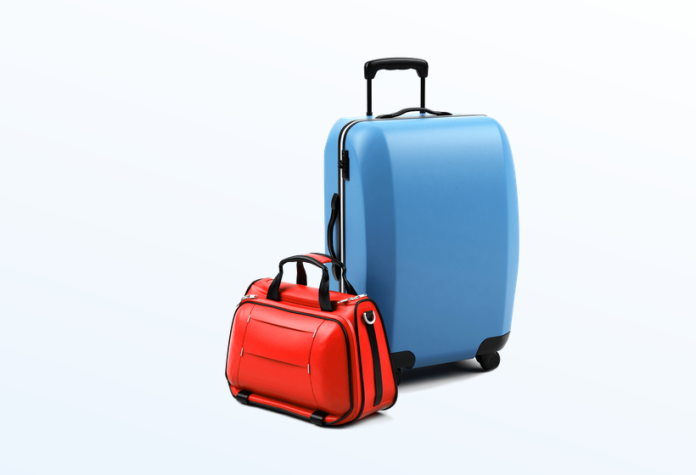SINGAPORE, 16 February 22024: More delays and ever-changing updates to travel essentials have made the journey confusing for travellers, especially those boarding a flight to far-flung places for the first time.
This is why travel insurance experts from Quotezone.co.uk have provided their top tips for young travellers to consider when jetting off. The youth travel market was estimated to account for 23% of all international tourist arrivals, generating more than UKP250 billion. Gen Z, 18 to 27-year-olds, book an average of 29 holiday days a year, with 90% of their travel decisions made by what they see on social media – with nearly half, 43%, using online travel agencies.
Travel insurance expert Tiffany Mealiff at Quotezone.co.uk says: “Travelling is confusing at the best of times; it’s tough to keep up with the changing dos and don’ts, especially if you’re taking a gap year and travelling to multiple countries as part of one trip. We’ve compiled a handy list of essentials that all young travellers should know before heading off.
“Gen Z travellers seem to rely heavily on social media channels for their travelling advice, and nearly half book the trips themselves online, so it’s worth doing some extra homework and checking official sources such as the Foreign Office – to make sure all bases are covered before setting off.
“Whether you took out a travel insurance policy for your upcoming trip at the same time you booked your flights, or you haven’t taken out a policy yet, it’s worth knowing what your policy will likely cover you for and what might be excluded.”
With that in mind, travel insurance comparison site Quotezone.co.uk has put together a list of twelve things you might not know about Travelling.
- A European Health Insurance Card (EHIC) isn’t a replacement for travel insurance because it doesn’t guarantee free medical treatment in other EU countries – it merely entitles travellers to treatment at the same rate that local residents pay. If your EHIC has expired, you’ll need to apply for the new global card, GHIC; you can do this easily online up to 9 months before you travel – it’s free and lasts for five years.
- While an annual travel insurance policy will cover you for an unlimited number of trips during 12 months, many travellers don’t realise there is a limit to how long each trip can last. With many insurers, the maximum duration you’ll be covered for during any one trip is 31 days, so if you’re taking a year out, you can sign up for backpacker travel insurance instead of an annual policy, which can provide you with continuous coverage for 12 months or more across numerous countries.
- Suppose you cannot travel due to a medical emergency or a family bereavement. In that case, your travel insurance can help cover the costs, but you should take out the insurance policy while booking your trip to ensure you’re covered.
- Suppose an airline urges you to check your hand luggage into the hold shortly before boarding the plane. In that case, your travel insurance may not cover those carry-on bags and their contents – some insurance policies insist that valuables are kept in your hand luggage for safety.
- Suppose you have a few alcoholic drinks at an “après ski” bar or beach party before deciding to hit the ski slopes or take to the water. In that case, there’s a good chance your insurance won’t cover you if you suffer an injury; any activity while under the influence of alcohol is usually excluded from the policy.
- Travel cards to be used abroad will require prepayment, and the exchange rate will be locked. Instead of getting the rate at the time of spending as you would with a credit or debit card. However, Certain businesses, such as car rental firms, won’t accept prepaid travel cards, so it’s essential to be mindful of where you’ll be spending. Most car hire places request a credit card to hold a security deposit.
- Changing your money into the local currency while waiting around at the airport might seem convenient and time-efficient, but there are often hefty additional service fees. Research shows that some airports charge between 10% to 13% more than high street or bank exchanges.
- It’s worth looking at what the exchange rates online are offering to customers before heading out to the high street or local bank. If you’re travelling to a less popular holiday destination, many in-person stores won’t have the currency in stock, so ordering online may be the best option.
- If flights are delayed or cancelled, young travellers should also be aware that they can request help with travel costs – claiming compensation if the cancelled flight means a delay of arrival by two or more hours. It’s important to ask for a refund and compensation as soon as possible – either at the airport or claiming from the airline once travellers have landed back home.
- Adding photos of your trip to social media while you’re away could actually invalidate your home insurance. Some insurers may consider it as highlighting to potential thieves that your home is unoccupied and you are not taking reasonable care of the property.
- Many holidaymakers are unaware that some of the most popular destinations have the highest incidents of petty theft. It’s essential to remain vigilant and always travel with a secure cross-body bag with zips or even a money belt. Never leave personal belongings unattended because travel insurance companies require travellers to take ‘reasonable care’ and could reject claims if items are left unattended.
- Finally, make sure your chosen destination has no warnings not to travel. Check your government’s travel advisories for updates. If you go against the advice, you could invalidate your insurance protection.








